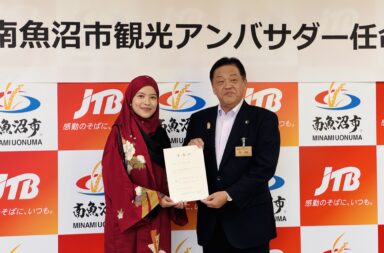Written by: Shifa Zulkifli
I had been waiting for my letter from Hogwarts all my life. As days passed, no owl has ever flown past my house. At one point, I had enough of waiting and decided to take destiny into my own hands…to go to the Harry Potter World at Universal Studio Japan. This is my story to the land of the rising sun.
It was not smooth sailing. As my epiphany came a bit late, I missed the deadline of Japan’s Ministry of Education, Culture, Sports, Science, and Technology (MEXT) scholarships (embassy recommendation) for that year. Nevertheless, I still applied for G30 Linguistics and Cultural Studies program at Nagoya University, hoping that I would find other scholarships later. Alhamdulillah, I was awarded a MEXT scholarship through university recommendation.
For your information, there are two types of MEXT scholarships; embassy and university recommendation. For embassy recommendation, you can find related information at the Japan embassy website of your country. As for university recommendations per my experience, I sent all related documents including the research proposal I would like to pursue in the university, have an interview regarding my proposal and Alhamdulillah they evaluated my proposal well which then they recommend me to MEXT. I have no other tips for you except to be an excellent applicant for the university to recommend you.
The First Step to Study in Japan
First of all, you have to find a course or program that you want to enroll. This can be done by browsing through Japan Student Services Organization (JASSO) website. You will find a lot of information pertaining to pursuing your study in Japan.
If your Japanese is only ‘sumimasen’ and ‘arigatou’, do not give up as there is still hope for you. Some universities in Japan provide courses in English as you can find the list of English programs from the JASSO website too. After you find the program that you want to enroll in, you just need to follow the application process, and voila, you might be accepted to study in Japan. If you ask another person, they might have different ways but this is how I did it.
After getting my offer letter and student visa, time to pack my luggage, and hello Japan!
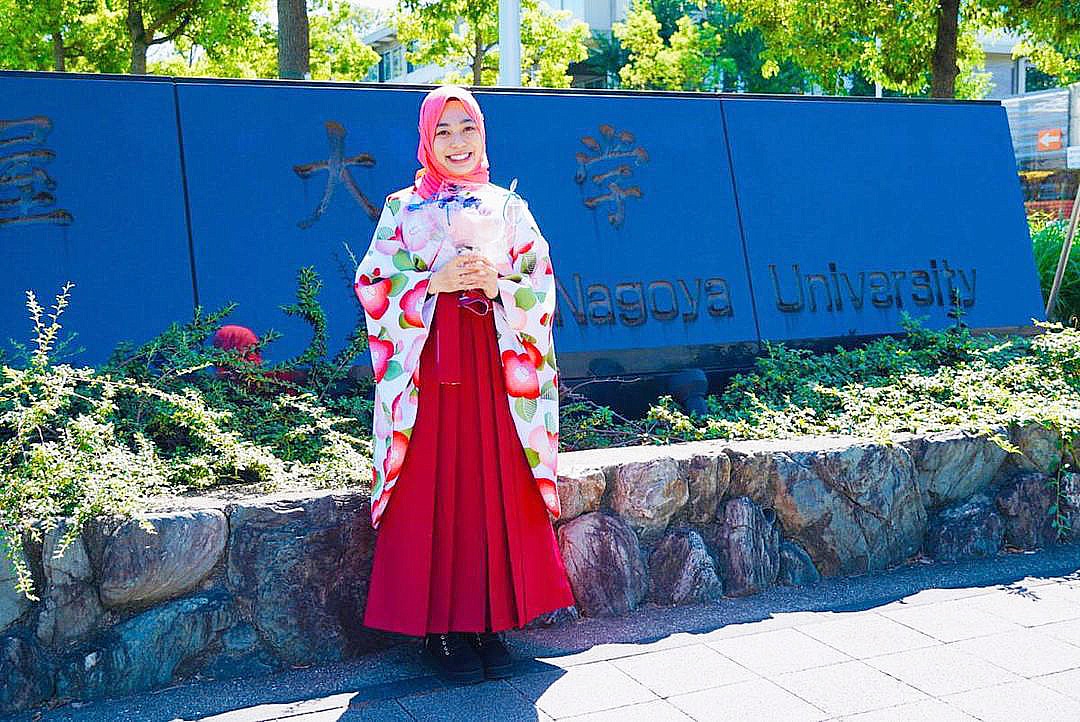
Touchdown Japan; Proceed All Things Needed
It was merely just a card but I was excited to receive my resident card at the immigration in Nagoya airport. From there, I made my way to Nagoya University or also known as ‘Meidai’.
As it is my first time landing in Japan for a living, I knew no one. Later I found the Malaysian community in Nagoya who made my life in Japan exhilarating. It is very important to find a community of your countries in the area so you will not feel alone.
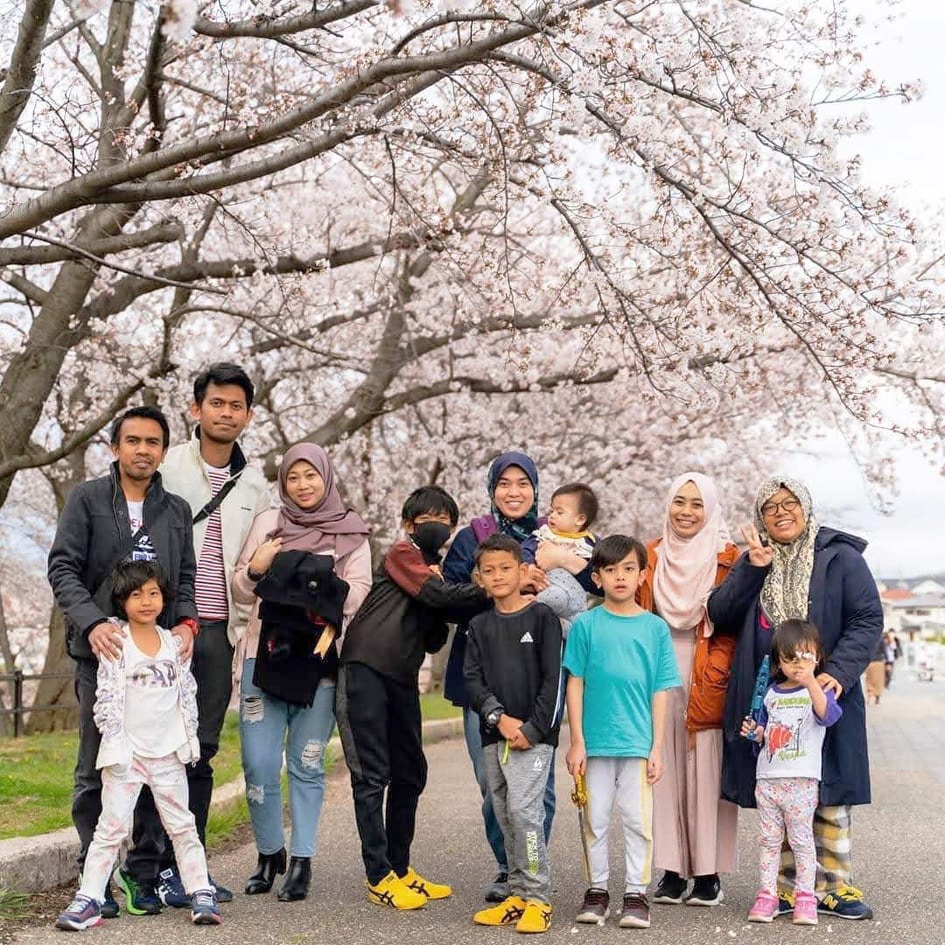
Sakura viewing with Chubu Malaysian Community
Touch down in Japan, you will need to proceed with all the things needed for a living at the city hall (shiyakusho/kuyakusho). The officers from the university and a tutor that is assigned to assist you in your first semester will help you with the registration at the city hall, finding the right mobile carrier for your phone, opening a bank account, getting a credit card, renting an apartment, helping with your study, and more from A to Z.
For the first six months, I lived at the student dormitory. It was very convenient. I had my own bathroom, fridge, and small kitchen. The only thing I had to share was the washing machine and the dryer. I enjoyed living in the dormitory, but I had to move because the room is only can be used for a certain amount of time.
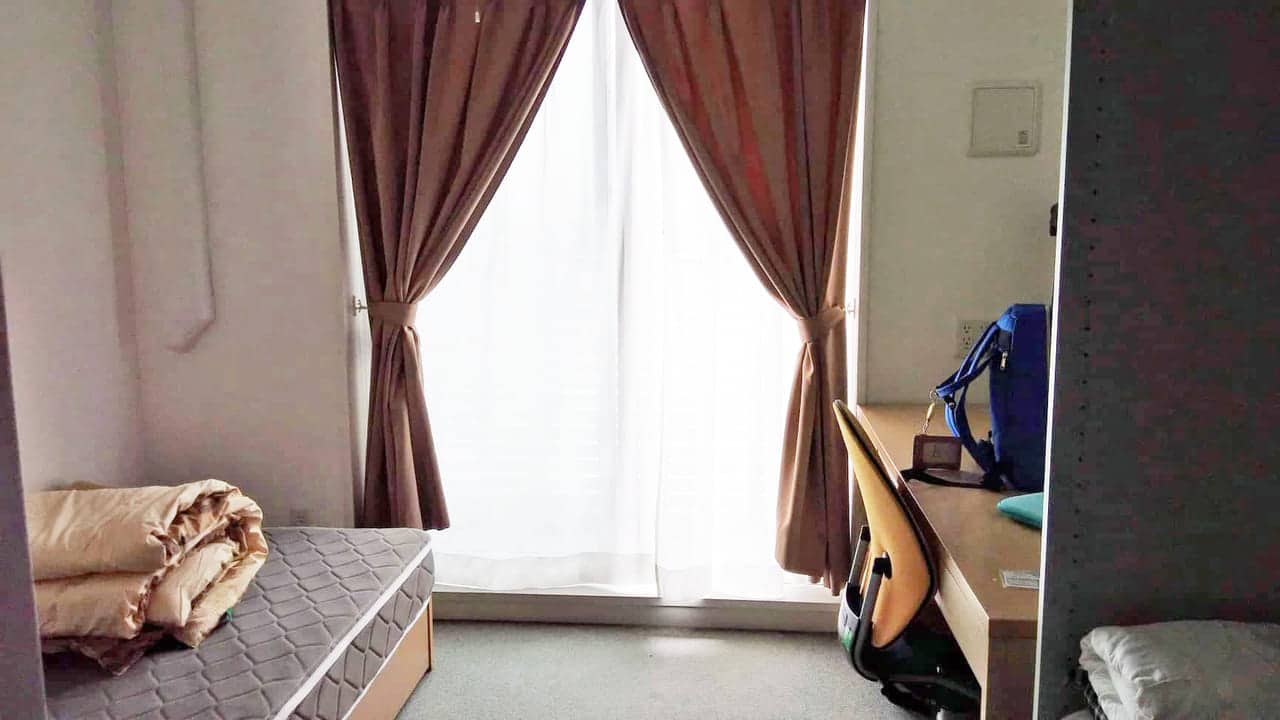
Dormitory room
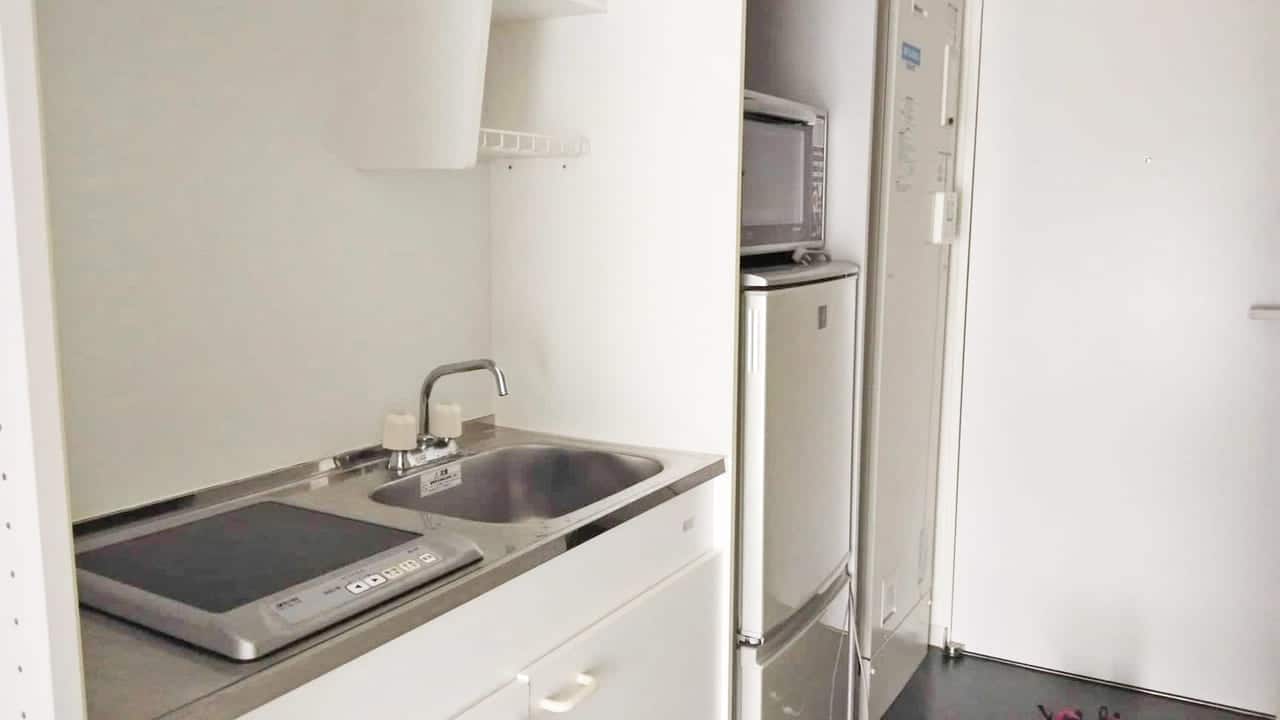
The room equipped with a kitchen and refrigerator so we can cook by ourselves
I found a place that was just a stone’s throw away from the university. To rent a house, you have to go to real estate agencies. They will suggest accommodations based on your specifications, such as distance from the train station, the amenities available, and the monthly rent. Bear in mind, you have to pay quite a lot for the first month as you will need to pay such as key money and guarantor fee besides of monthly rental fee.
In my case, I found a room that costs around 30,000 yen monthly which costs the same as my previous student dormitory. I spend less than 10,000 yen a month on utilities and about 20,000 yen a month on food as I eat a lot. However, it might vary from person to person. This is just the basic idea of how much you would spend in a month. The living expenses also depend on your location. If you are planning to stay in Tokyo or Kyoto, probably you spend more than this.
See Also
A Story; Algerian Student Chases Dreams In Japan
FAQ: Living as a Muslim in Osaka
FAQ: Living as a Muslim in Kyoto
Life as a Muslim
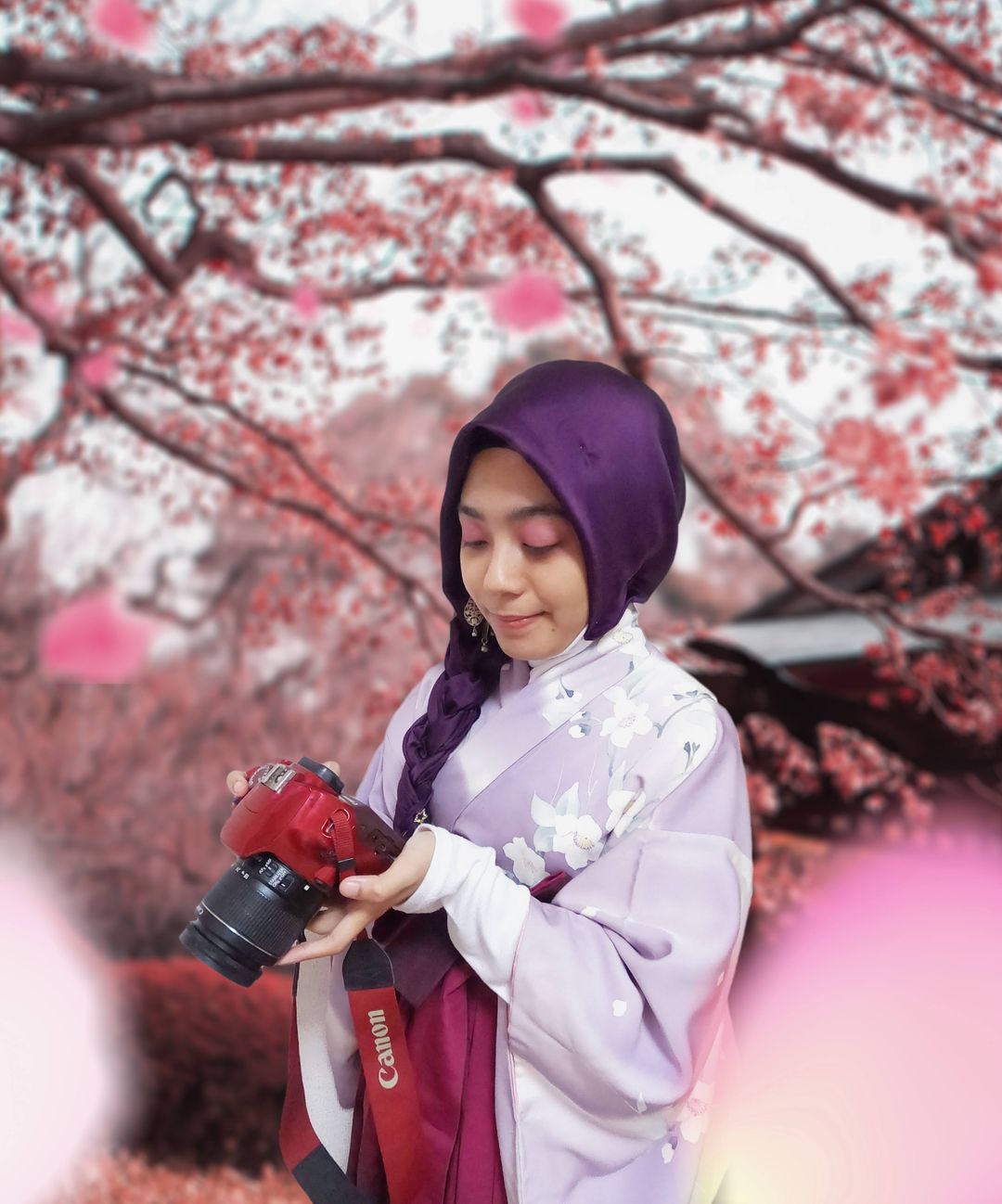
If you are a Muslim, perhaps the word ‘halal’ keep dancing in your head all the time. Fret not!
As a Muslim, I can assure you that there is nothing to worry about. In my university, the cafeteria serves halal food. You can also buy halal meat and ingredients from halal shops close to the university such as Halalya and Mybotang to cook your own meal. Some shops also provide delivery. If at some point you are tired of cooking, there are some halal restaurants in Nagoya such as Yamamotoya (do try their miso nikomi udon!).
See Also
Halal restaurant/shop list in Aichi Prefecture
Halal Food at Japanese Supermarket; Your Halal Needs at Gyomu Super!
What about prayer? In my case, I used to go to the section in the library where students rarely go and pray peacefully there. However, there are some places in Nagoya University where they are being used as a prayer room. When going to the city center, I use the fitting rooms in the mall. There is a case to use a space at the exit staircase, however, you might need to ask for permission at the information center in a mall/building (or at least inform them) that you would like to use the space for 5-10 minutes to pray to prevent misunderstanding. Basically, just find any spot that you can pray comfortably without disturbing people.
“Japan Masjid Finder” to find nearest prayer spaces and mosques
In some period of time, I was often being asked about is there any discrimination against Muslims. Well, in my case, I don’t experience any. But sometimes, the police officers ask foreigners to show their resident cards and I’ve been experiencing it. It is just a regular random check by the police officers (because sometimes there are overstay cases, etc) so you don’t need to afraid and just show your resident card. On top of that, some Japanese compliment my hijab saying the pattern or the color is nice. Some would give salam. Some would try to make small conversations with me especially Japanese ojisan (uncles) and obasan (aunties).
I was one of the committee members of Islamic Culture Association in Nagoya University (ICANU). It was a priceless experience being a part of the association. I had the opportunity to attend a few talks by Imam Ahmad Maeno. During the talk, I got to know some Japanese who are trying to learn about Islam and they are very humble. It was an honour for me to share my little knowledge and understanding about Islam with them.
One Tip in Living Abroad
One thing for sure is to establish a strong support system. So whenever your life gets stormy, there is someone that will share their umbrella with you. Yes, what a weird metaphor but you get what I mean. This is very important to not let you fall down and deep into the pit of depression when you are living alone and under a lot of stress.
In a nutshell, I cherished every moment of living and traveling in Japan.
